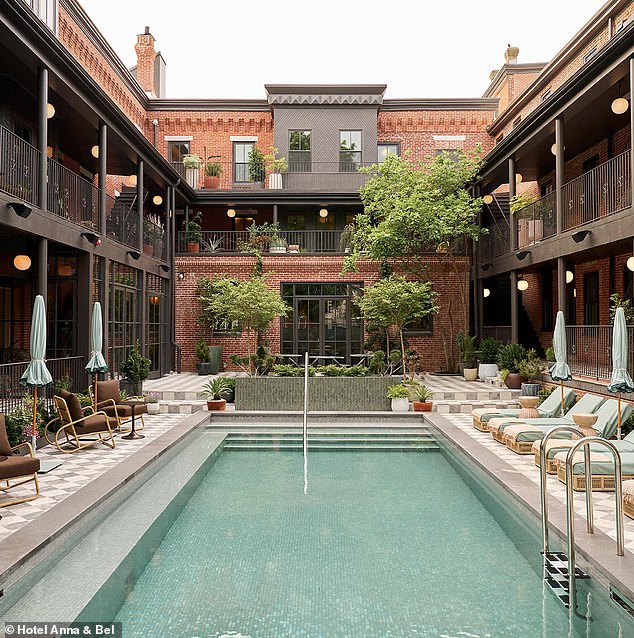An 18th-century women’s asylum has been given a new lease of life as a stylish and elegant hotel that is generating much excitement.
Opening in August, Hotel Anna & Bel is tucked away in a quiet corner of the City of Brotherly Love, steeped in history.
The property was long a communal living home called the Penn Asylum for Destitute Widows and Single Women, where widows could go after their husbands died.
It remained that way for more than a century, providing services to older women and, eventually, to men in the neighborhood.
The center finally closed its doors in 2020 after 162 years, raising concerns about what would come next. But real estate professionals managed to resurrect it, with 50 remodeled rooms and rates starting at $300 per night.
The Anna & Bel Hotel opened its doors in Philadelphia in August and is tucked away in a quiet corner of the City of Brotherly Love.
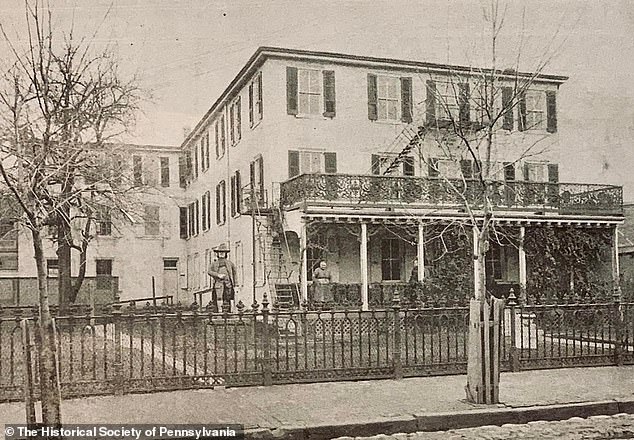
The property was long a communal living home called the Penn Asylum for Destitute Widows and Single Women, where widows could go after their husbands died.
“Throughout the renovation process we worked with the Preservation Society of Philadelphia to emphasize and honor the property’s rich architectural history,” said Dor Berkovitz. Travel + Leisure Before its opening last month.
Berkovitz is co-founder of the real estate development company behind the project, Foyer Project.
She went on to describe the year-long process and how it was accomplished “while giving the space a new design life with modern amenities and features.”
“That new design draws heavily from the property’s history,” she said, citing “curved lines, pastel colors and other elements that draw on the property’s inherent femininity.”
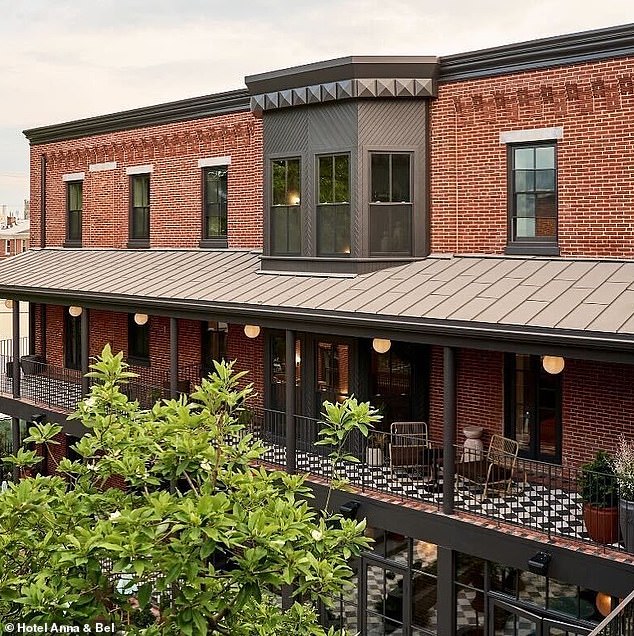
However, the center closed its doors in 2020 after 162 years, raising concerns about what would come next. Real estate professionals managed to resurrect it, with 50 remodeled rooms and rates starting at $300 per night.
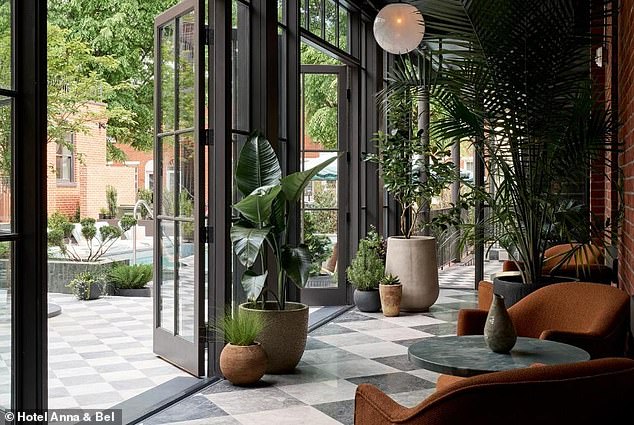
“Throughout the renovation process we worked with the Preservation Society of Philadelphia to emphasize and honor the property’s rich architectural history,” said real estate professional Dor Berkovitz of her firm’s successful bid to transform the historic site.
The finished product was unveiled on August 7 and was Named one of the most exciting hotel openings earlier this year by Condé Nast Traveler,
His restaurant Bastia was included on Bon Appétit’s list of must-try new restaurants, operated by chef Tyler Akin, the mind behind Le Cavalier at Wilmington’s Hotel Du Pont.
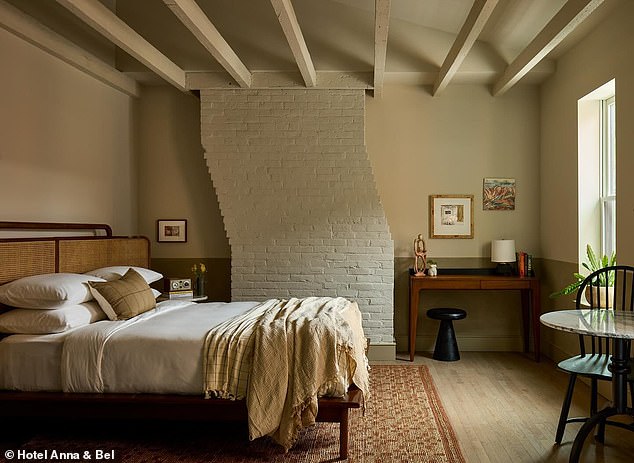
IN THE PHOTO: A guest room inside the newly opened hotel
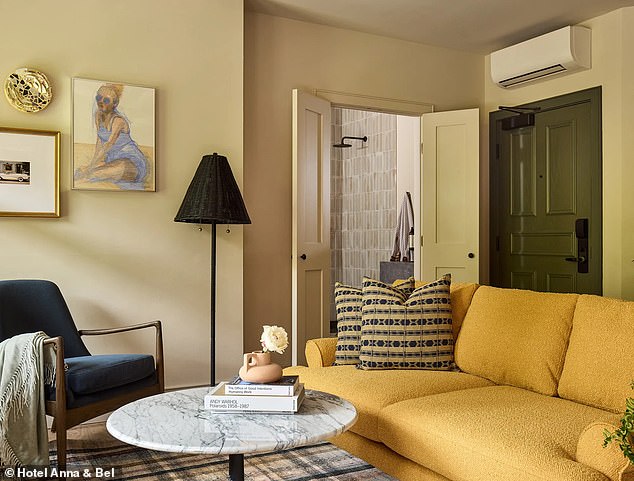
The Anna & Bel Hotel features elegant and modern furnishings.
For a neighborhood removed from the hustle and bustle of the city (historic Fishtown northeast of downtown), it was a welcome addition, Berkovitz said.
The area has been a working-class outpost for centuries, but has recently re-emerged as an area where culinary, artistic and musical trends begin.
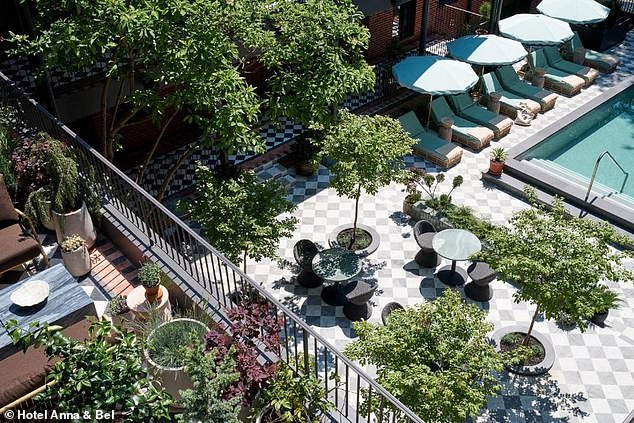
She described the year-long process and how it was accomplished “while giving the space a new design life with modern amenities and features.”
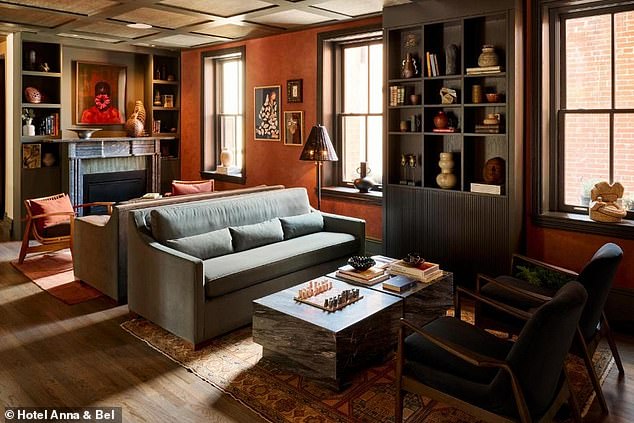
“That new design draws extensive inspiration from the property’s history,” she said, citing “curved lines, pastel colors and other elements that lean into the property’s inherent femininity.” The finished product was unveiled Aug. 7 and put those fruits on display.
Anna & Bel fits the bill perfectly, with the Caletta piano cocktail lounge serving spritzes, swizzles and Italian bites that enhance Bastia’s seafood.
“As residents of the neighborhood, we don’t have anything similar that appeals to both visitors to the area and locals,” Berkovitz said of the hotel that also has a courtyard pool.
‘In recent years, Fishtown has seen a surge in new restaurants and shops.
‘That’s why we thought the neighborhood would be perfect for travelers looking for a destination that combines a sense of community with comprehensive amenities and boutique offerings.’
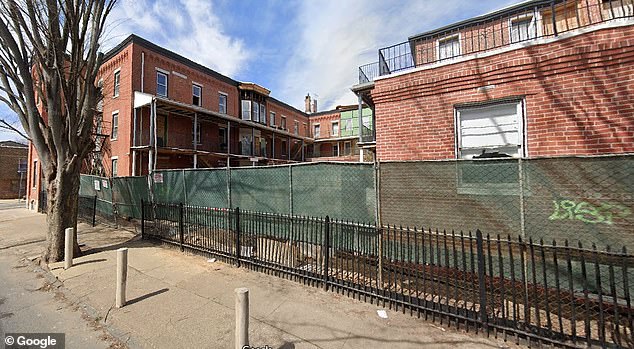
It closed its doors suddenly in September 2020, a victim of staff shortages caused by the pandemic.
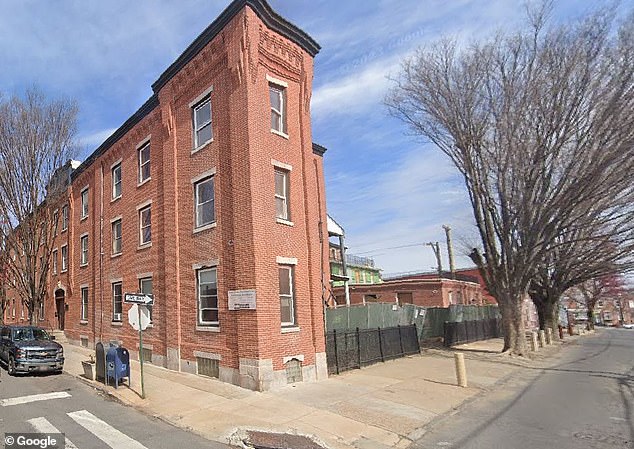
However, shortly after closing, the building was added to the Philadelphia Register of Historic Places by The Keeping Society of Philadelphia, thereby protecting it from future demolition.
Rooms vary in size from studios to twin rooms, and some include balconies.
There is a patio area, a gym, a sauna and a variety of art, mostly from local and female artists remembering their history.
“A pillar of home and community for generations, this beloved neighborhood landmark is steeped in rich heritage,” a profile on the website states.
In addition to artistic décor and an all-day dining area, the hotel’s heated pool features a state-of-the-art gym, sauna and spa.
The second floor terrace is shared and was once frequented by the women who called the building their home.
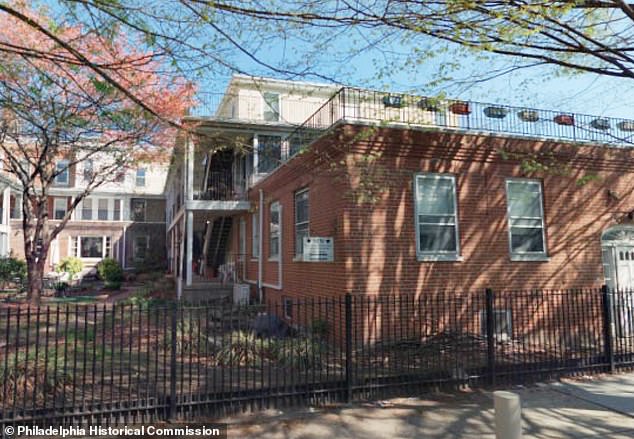
Berkovitz and company filed an application to rezone it just over a year later, and the rest is history.
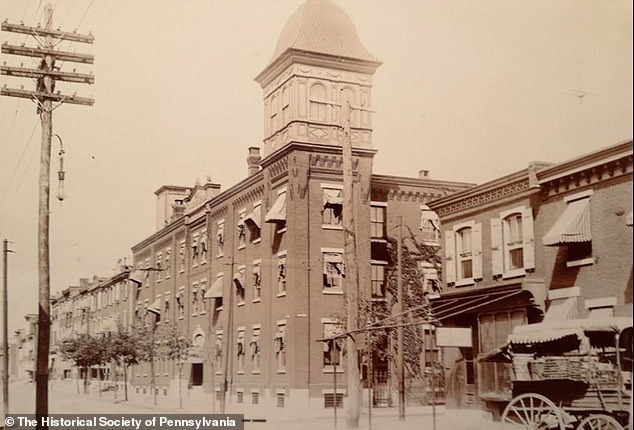
A document submitted by The Keeping Society of Philadelphia for permission to preserve the building adds useful information about the structure’s significance and the attempt to protect it.
The dominating outdoor space, originally built in the 1880s and 1890s, was redesigned “to look transportive,” Berkovitz said.
‘We wanted the area to feel like an escape from the city.
The result is something more akin to New Orleans than Philadelphia, surrounded by iron railings “that draw on both French and chic Mediterranean influences to make the area feel like a coastal oasis,” he told the publication.
A document submitted by The Keeping Society of Philadelphia for permission to preserve the building adds useful information about the structure’s significance and the attempt to protect it.
Founded in 1852, the Pennsylvania Asylum for Destitute Widows and Single Women ‘exemplifies the cultural, political, economic, social, or historical heritage of the (Fishtown) community.’
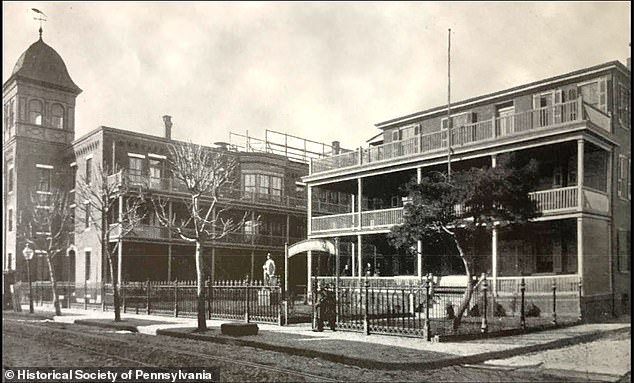
Founded in 1852, the Pennsylvania Asylum for Destitute Widows and Single Women “exemplifies the cultural, political, economic, social, or historical heritage of the (Fishtown) community.”
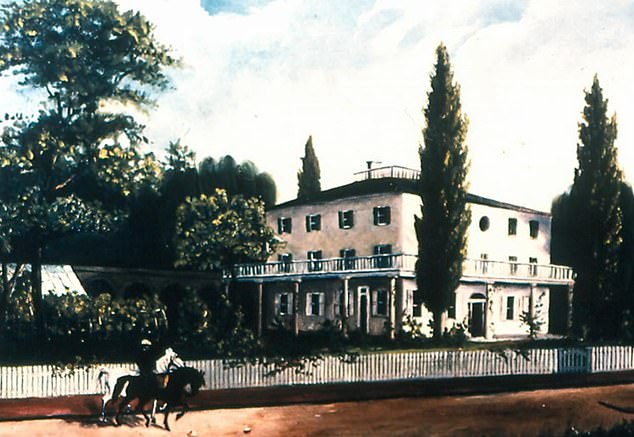
“For more than 140 years, the organization provided housing to women in the community over the age of 59,” the document states.
“For more than 140 years, the organization provided housing to women in the community over the age of 59,” the document states.
A charter change in the 1990s allowed the organization to expand from just widows to an affordable, gender-neutral nursing home.
It closed its doors suddenly in September 2020, a victim of staff shortages caused by the pandemic.
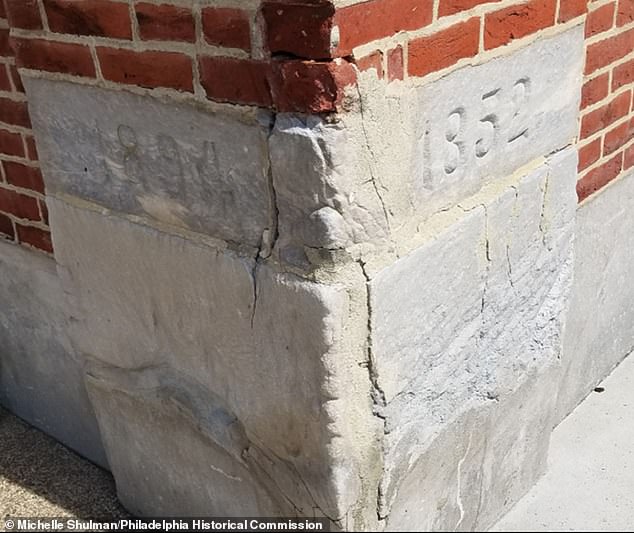
The hotel is now fully open and ready to contribute to the building’s already excellent reputation whilst offering a renewed purpose.
However, shortly after closing, the building was added to the Philadelphia Register of Historic Places by the Keeping Society of Philadelphia, thus protecting it from future demolition.
Berkovitz and company filed an application to rezone it just over a year later, and the rest is history.
The hotel is now fully open and ready to contribute to the building’s already excellent reputation, whilst offering a renewed purpose.

